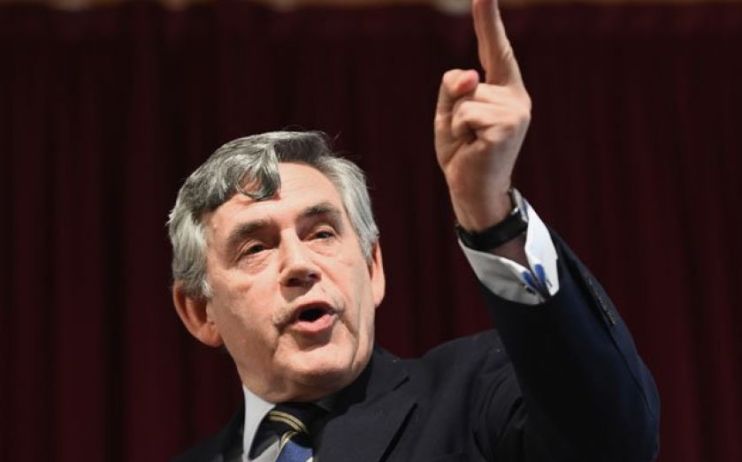Gordon Brown joins 50 charities urging action on cost of living crisis, u-turn on ‘unthinkable’ below-inflation benefit rise

Former Prime Minister Gordon Brown joined around 50 charities urging the government to urgently address the cost of living crisis, and change its mind on a below-inflation benefits rise.
Pressure was growing on ministers this week not to go ahead with the rise of 3.1 per cent in the Spring statement, as inflation is set to go above seven per cent. Today, the Bank of England announced an increase in interest rates for a third successive meeting, in a bid to ease inflationary pressures.
Almost 50 charities, including Child Poverty Action Group (CPAG), the Joseph Rowntree Foundation (JRF), Citizens Advice and Save the Children UK co-wrote an open letter this week, warning the the uprating would amount to a “real-terms income cut just six months after the £20 per week cut to universal credit”, back in October.
Calling the impact of the policy “unthinkable”, they say the CPAG’s research shows that families’ “universal credit will fall in value by £570 per year”, while JRF claim 400,000 may be “pulled into poverty” by the real term cut.
The letter, which is also signed by charities such as The Trussell Trust, Mind, Oxfam and Age UK, calls on the government to “increase benefits by at least 7 per cent in April to match inflation, and ensure support for housing costs increases in line with rents.”
This comes after Gordon Brown, former prime minister and long-serving chancellor, signed a separate letter with the Alliance for Full Employment, saying “3 million more Britons will become fuel poor” in the next two weeks, because of the crisis.
Also signed by Welsh First Minister Mark Drakeford, eight Labour mayors and 70 local authority leaders, it claims: “the cost of living crisis has really taken over from the Covid crisis as a real catastrophe for people.
The signatories urge chancellor Rishi Sunak to avoid the “unacceptable and avoidable suffering for millions of our fellow citizens – and especially for millions of children”, by addressing rising costs of living, including a real-term benefits rise.
A Government spokesperson said: “We recognise the pressures people are facing with the cost of living, which is why we’re providing support worth £21 billion this financial year and next to help. This includes putting an average of £1,000 more per year into the pockets of working families via changes to Universal Credit, freezing fuel duties to keep costs down and helping households with their energy bills through our £9.1 billion Energy Bills Rebate.
“We’re also boosting the minimum wage by more than £1,000 a year for full-time workers and our £500 million Household Support Fund is helping the most vulnerable with essential costs.”
